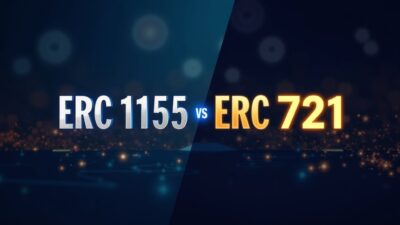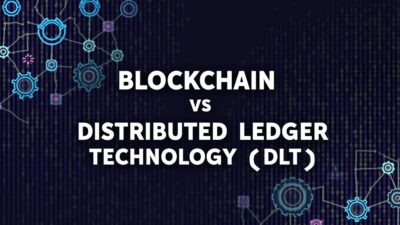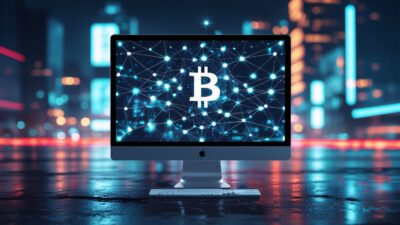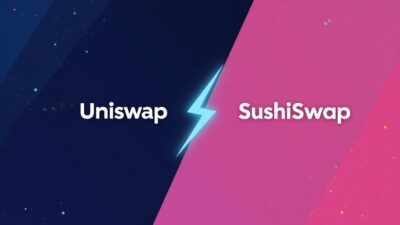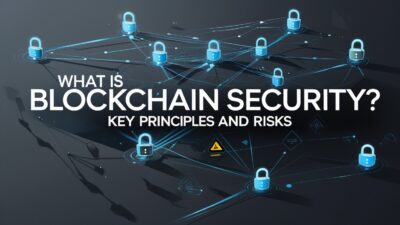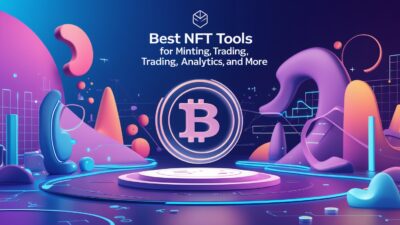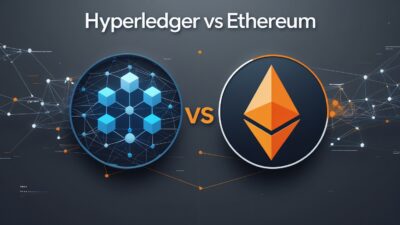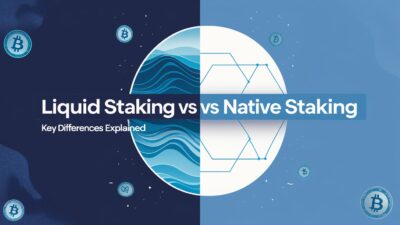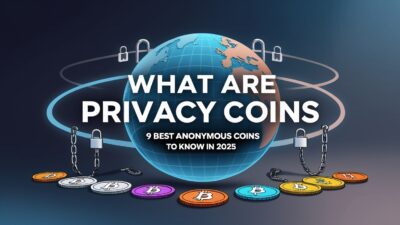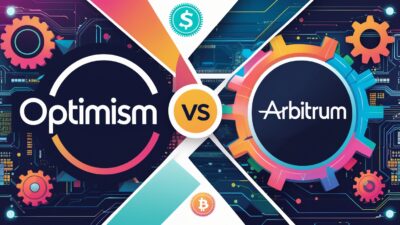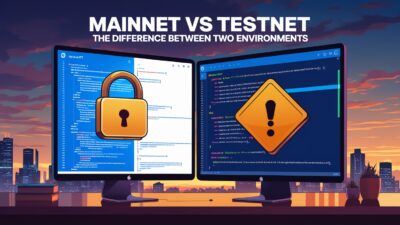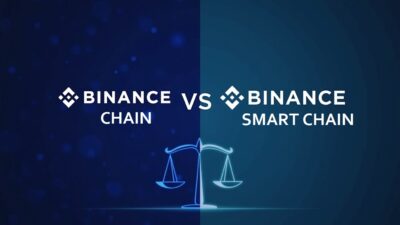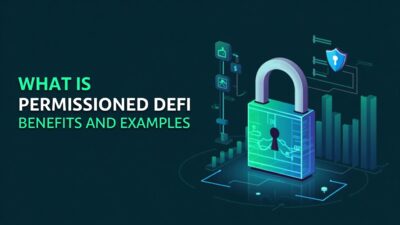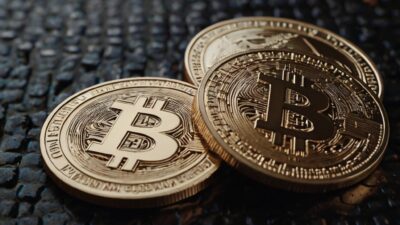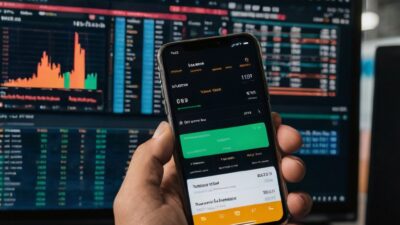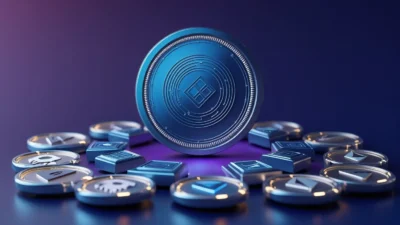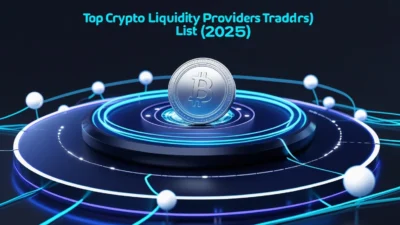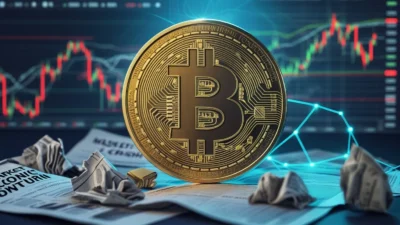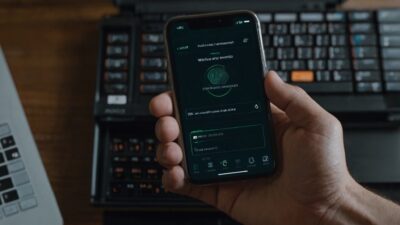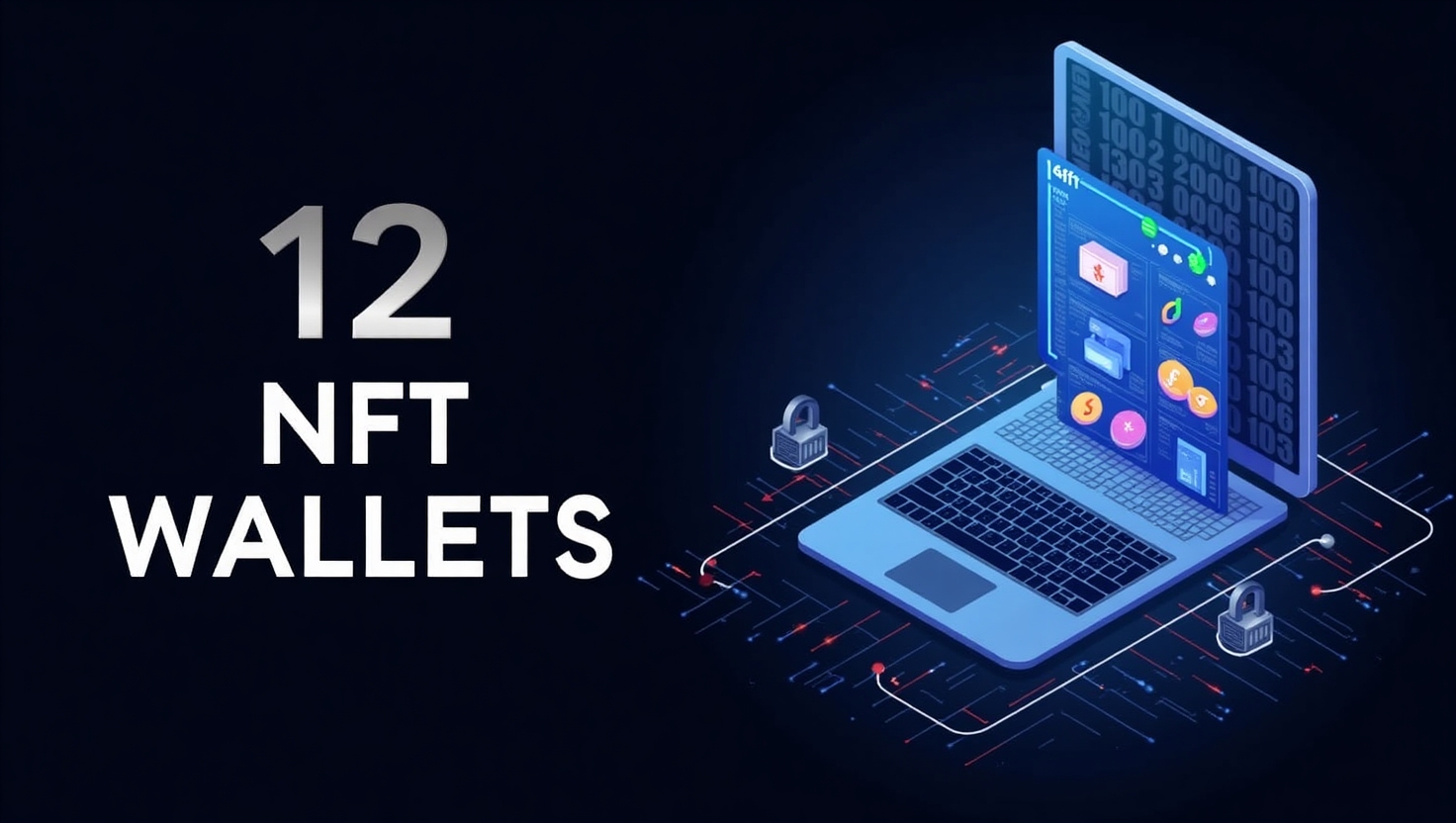
Your NFT collection is only as safe as the wallet it lives in. Doesn’t matter if you have got a pricey Bored Ape or just grabbed your first NFT, the wallet you pick can either keep it snug or let it all slip away. There are tons of wallets screaming We’re the best! So it gets really tough to know who’s telling the truth.
Here’s the deal: not every crypto wallet is great with NFTs, and some NFT wallets just aren’t that good. Some are great at displaying your digital art, others are super secure, and a few balance the ease of use with cool features. Pick the wrong one, and it’s not just a hassle, but you could also lose your precious digital collectibles for good.
This guide cuts through the noise and lists 12 of the best NFT wallets out there, covering everything that matters. We tried them out ourselves, checked their security, and matched them to what you might need. Whether you are a serious collector needing cold storage, a gamer with in-game items, or just starting with OpenSea, you’ll find the right wallet here.
What Can an NFT Wallet Do for You?
An NFT wallet is not just a place to store stuff. It is your entry point into the whole NFT world. Imagine it as part digital safe, part art gallery, and part transaction centre all in one. But what makes it different from a regular crypto wallet?
At the core, an NFT wallet keeps all the private keys that prove your ownership of specific NFTs on the blockchain. Think of NFTs like property deeds. The actual NFT lives on the blockchain, and your wallet just holds the proof that it’s yours. It’s like having the papers for a house. But not the house itself in your pocket. The distinction matters because it means your NFTs are safe, even if you switch wallets. Nothing will happen as long as you have your private keys.
The best NFT wallets go way beyond basic storage. They let you share your NFT collection in sleek galleries, so you can actually enjoy your digital art for once. Instead of just knowing it is there. They also plug right into marketplaces like the OpenSea, Rarible, and Magic Eden. Making it easy to buy, sell, and trade without any extra hassle.
Some platforms allow creators to mint NFTs directly, enabling artists to launch their own collections without needing to understand complex technical details. It’s super accessible. What really separates NFT wallets from standard crypto wallets is metadata support. NFTs contain rich information, images, attributes, rarity scores, and unlockable content. A good NFT wallet reads and displays this metadata properly. Try viewing an NFT in a basic Bitcoin wallet, and you will just see a token ID. And if you view it in a proper NFT wallet, you will be able to see the artwork, its properties, and its history.
Modern NFT wallets also handle the complexity of multiple blockchain networks. Your Ethereum NFTs, Solana collectibles, and Polygon gaming assets can often live in the same wallet, properly organized and accessible. They handle the gas fees for NFT transactions, which can be trickier than regular token transfers.
Best NFT Wallets for Users and Businesses in 2025
Choosing the best NFT wallet actually depends on your needs. As there is no such thing as one size fits all. We put these wallets to the test, checking which blockchains they support (like Ethereum, Solana, and Layer-2s). That is how we learned about their user-friendliness, for both beginners and pros, their security track record, and what sets them apart. This guide is about finding the right wallet for your specific needs, not just listing features.
1. MetaMask – Best for Ethereum NFTs & DApp Use
MetaMask is still the champion for Ethereum NFT wallets. It’s popular for a reason. Used by over 30 million folks, it’s supported everywhere like the NFT platforms, DApps, and marketplaces. If a site connects to wallets, it usually works with MetaMask.
Key Features:
● Global Compatibility with Ethereum & EVM chains
● Built-in NFT detection and display
● Hardware wallet integration (Ledge & Trezor)
● Custom network support for any EVM chain
● Mobile and browser extension versions
● Token swapping directly in the wallet
Pros:
● Accepted literally everywhere in the Ethereum ecosystem
● Excellent developer support and documentation
● Regular security updates and active development
● Free to use with no hidden fees
● Strong community and troubleshooting resources
Cons:
● NFT display features are basic compared to specialized wallets
● Can be overwhelming for complete beginners
● Frequent phishing attempts target MetaMask users
● Mobile app sometimes buggy with NFT displays
MetaMask’s true strength is its universality. You would hardly find an Ethereum NFT platform that doesn’t support it. While it may not have the most visually appealing NFT gallery, its reliability and widespread adoption make it essential for any serious NFT user.
2. Trust Wallet – Best All-Round Multi-Chain NFT Wallet
Backed by Binance, the Trust Wallet covers a lot of ground. It may not excel in a single area, but it is certainly proficient in almost everything.
Key Features:
● Compatible with 70+ blockchains like Ethereum, BSC, and Solana
● Has an NFT marketplace aggregator built in
● Includes a mobile DApp browser
● Staking available for several tokens
● Works with WalletConnect
● No sign-up / KYC required
Pros:
● Smooth multi-chain support without manual network switching
● Clean, easy-to-use interface
● Good NFT gallery with auto detection
● Built-in DEX for quick swaps
● Encrypted cloud backup for security
Cons:
● Closed source, so less transparency
● Strong Binance link may not appeal to everyone
● Desktop wallet lacks features
● Customer support can be slow at times
Trust Wallet is a solid choice if you are juggling NFTs across different blockchains. The built-in gallery and user-friendly design make it especially handy for collectors who value simplicity.
3. Ledger Nano X – Best Cold Storage for NFTs
If your NFTs are worth enough that losing them would be painful, a hardware wallet is the safer bet. Ledger Nano X is one of the most popular options, balancing tight security with decent usability.
Key Features:
● Bluetooth support for mobile connections
● Supports 5,500+ tokens and most NFT blockchains
● Works with Ledger Live app for managing NFTs
● Uses a certified secure chip (CC EAL5+)
● Can hold up to 100 apps at once
● Battery included for portability
Pros:
● Extremely secure since private keys never leave the device
● Small display helps confirm transactions before approval
● Can be linked with MetaMask and similar wallets
● Regular firmware updates
● Easy recovery with seed phrase if lost
Cons:
● Pricey at around $149
● Some learning curve if you have never used hardware wallets
● Requires physical approval for transactions
● Ledger Live doesn’t perfectly show all NFT formats
Ledger Nano X is ideal for serious collectors who want peace of mind. It’s not as convenient as a mobile wallet, but the added security is worth it once your collection starts growing.
4. Coinbase Wallet – Best Beginner-Friendly NFT Wallet
Coinbase Wallet is built for people just getting into NFTs. It connects easily with the main Coinbase exchange, so it makes buying your first NFT pretty easy.
Key Features:
- Supports Ethereum, Polygon, and other EVM chains
- NFT gallery built into the app
- Direct connection to Coinbase for funding
- Non-custodial, so you control your own keys
- Works with WalletConnect
Pros:
- Very beginner-friendly
- Smooth setup with Coinbase exchange
- NFT display looks clean
- Solid security from a trusted brand
Cons:
- Limited blockchain support compared to others
- Fewer advanced NFT features
- Heavier reliance on the Coinbase ecosystem
Here is the bottom line: if you are new and already use Coinbase, this wallet makes NFTs easy.
5. Phantom Wallet – Best for Solana NFTs & DApps
Phantom is the wallet that made Solana NFTs accessible to the masses. It is not just fast, but clean, and feels built specifically for NFT traders.
Key Features:
- Native Solana support
- NFT gallery with rarity info
- Built-in DEX for swapping SOL tokens
- Staking integration
- Browser extension and mobile app
Pros:
- Best Solana NFT support out there
- Super-fast transactions with low fees
- Easy to use & beginner friendly
- Active development team
Cons:
- Primarily Solana-focused despite multi-chain addition
- Still growing, so some bugs appear
- Smaller ecosystem compared to Ethereum
Phantom wallet is super stylish, especially for NFTs on Solana. Its design makes it a joy to look at and manage your collection.
6. Enjin Wallet – Best for NFT Gaming and Collectibles
Glow is another Solana wallet, but it is especially strong for mobile-first NFT and gaming users.
Key Features:
- Solana NFT gallery with smooth visuals
- Great iOS and Android apps
- In-app token swaps
- NFT minting support
- Strong developer integrations
Pros:
- Designed beautifully for mobile
- Great for NFT gaming on Solana
- Easy swaps inside the wallet
Cons:
- Solana-only support
- Smaller user base than Phantom
- Still newer, less proven
For gamers with NFTs in multiple games, Enjin Wallet has special features that cater to their needs. It is like having a toolbox designed just for them.
7. Zengo Wallet – Best Keyless NFT Wallet for Security
Zengo takes a radically different approach to wallet security—no seed phrases. ZenGo changes the game by removing seed phrases. Instead, it uses facial recognition and encrypted backup for wallet recovery.
Key Features:
- Seedless recovery with biometrics
- NFT storage across Ethereum and Polygon
- Simple NFT gallery
- 24/7 customer support
- Mobile-first wallet
Pros:
- No seed phrases to lose
- Very beginner-friendly
- Good customer service
- Clean mobile design
Cons:
- Closed-source technology
- Less flexible for advanced users
- Limited blockchain support
Zengo is perfect for users who want security without the responsibility of managing seed phrases. It is the best crypto wallet for NFTs. And for people who don’t want the stress of losing keys again.
8. BitKeep – Best for NFT Launchpads and Airdrops
BitKeep (now Bitget Wallet) excels at helping users discover and participate in new NFT projects. It’s the scout of NFT wallets, always finding the next opportunity.
Key Features:
● NFT launchpad integration
● Airdrop discovery and claiming
● Support for 90+ blockchains
● Built-in NFT marketplace aggregator
● DeFi integration for yield farming
● Swap aggregator for best prices
Pros:
● Excellent for finding new NFT projects
● Comprehensive multi-chain support
● Active Asian NFT market integration
● Good yields on staked assets
● Regular feature updates
Cons:
● Interface can be cluttered
● Aggressive promotion of partnered projects
● Less known in Western markets
● Some translations are poor
BitKeep is ideal for active NFT traders always hunting for the next big thing, especially in Asian markets.
9. Argent Wallet – Best for Layer-2 NFTs (zkSync & Starknet)
Argent pioneered social recovery and now leads in Layer-2 NFT support. So if you are tired of Ethereum’s gas fees, Argent offers the best path to cheaper NFT transactions.
Key Features:
● Native zkSync and Starknet integration
● Social recovery (no seed phrases)
● Daily spending limits
● Guardians for account recovery
● Built-in L2 bridge
● Free ENS name included
Pros:
● Dramatically lower gas fees on L2
● Innovative security without seed phrases
● Clean, minimalist interface
● Excellent customer support
● Regular security feature updates
Cons:
● Limited to the ethereum ecosystem
● Some features require the guardian’s setup
● Smaller DApp ecosystem on L2
● Recovery process can be slow
Argent is leading the way in NFT wallets, focusing on Layer-2 solutions and social recovery, making it ideal for users who want to save on costs.
10. Exodus Wallet – Best for Desktop Users Holding NFTs
Exodus brings top-notch NFT management to your desktop with a sleek interface that makes tracking your portfolio a breeze. It’s perfect for NFT fans who prefer handling their assets on their computer.
Key Features:
● Native desktop apps for Windows, Mac, Linux
● Portfolio tracking with live prices
● Built-in exchange for 260+ cryptos
● Hardware wallet integration
● 24/7 human support
● Automatic NFT detection
Pros:
● Stunning desktop interface
● Excellent portfolio visualization
● Seamless desktop-mobile sync
● No registration required
● Regular updates and new features
Cons:
● Not open source
● Limited NFT-specific features
● Higher exchange fees than DEXs
● NFT support is still developing
Exodus gives NFT holders a top-notch desktop experience with powerful tools to manage their portfolios like a pro.
11. AlphaWallet – Best for NFT Developers and Power Users
AlphaWallet is like the ultimate power tool for NFT enthusiasts. It is super customizable and packed with advanced features that other wallets don’t even think about.
Key Features:
● TokenScript support for smart token interaction
● Advanced NFT features for developers
● Fully open source
● Built-in token attestation
● Support for complex NFT standards
● Ethereum focused on L2 support
Pros:
● Completely open source and auditable
● Advanced features for NFT developers
● Supports experimental NFT standards
● No tracking or analytics
● Active developer community
Cons:
● Steep learning curve
● Interface isn’t beginner-friendly
● Smaller user community
● Limited non-Ethereum support
AlphaWallet is the best NFT wallet for developers and power users who need advanced features and complete control.
12. XDEFI Wallet – Best Browser Extension for NFTs Beyond ETH
AlphaWallet is perfect for developers and power users who want advanced features and total control over their NFTs.
Key Features:
● Native support for 34 blockchains
● NFT gallery across all chains
● Built-in bridges for cross-chain transfers
● THORChain integration for native swaps
● Hardware wallet support
● Real time gas optimization
Pros:
● True multi-chain without network switching
● Excellent NFT display across chains
● Fast performance with efficient indexing
● Good security audit history
● Active development team
Cons:
● Newer wallet with a smaller community
● Some chains have limited features
● Occasional sync issues
● Premium features require holding the XDEFI token
XDEFI is ideal for NFT collectors who use multiple blockchains and want a single interface to manage their assets across all platforms.
Choosing the Right NFT Wallet for Your Needs
Picking the best NFT wallet is not about the features. But it is actually about finding the one that fits your needs. Here is how to figure out the right match:
Consider Your Experience Level
If you are just starting with your NFT Wallet journey. Then look for wallets that are easy to use and come with solid support. Coinbase Wallet and Trust Wallet are some of the great options here. However, if you are more experienced or familiar with NFT wallets, then you might like the extra control of AlphaWallet or the advanced tools in XDEFI.
Evaluate Your Security Needs
A hardware wallet like a Ledger Nano X is the safest bet If you are holding a high-value collection. For smaller everyday use, some hot wallets like MetaMask or Phantom work really well. And if you are worried about misplacing the seed phrases. Then Zengo is here as a stress-free alternative.
Think About Your Blockchain Preferences
– Ethereum users: MetaMask is a great choice.
– Solana collectors: Phantom is the way to go.
– Multi-chain users: Trust Wallet or XDEFI work well.
– Gaming NFTs: Enjin is a good option.
Assess Your Usage Patterns
Different users have different priorities when it comes to NFT wallets. Active traders need wallets with marketplace integration and fast transactions to buy and sell quickly.
On the other hand, the long-term holders prioritize security over convenience, willing to take extra steps to protect their assets. Meanwhile, developers require advanced features and open source code to build and customize their applications.
How to Get Started With an NFT Wallet
Setting up your first NFT wallet is simpler than it seems. Here is a clear step-by-step guide to get started with an NFT Wallet:
Step 1: Choose Your Wallet Type
You can choose from having a hot wallet (software) or a cold wallet (hardware). But beginners should always start with a hot wallet for learning and handling small amounts. And once your collection reaches a valuable point, add a hardware wallet to it for extra security.
Step 2: Download and Install
You should only download wallets from verified / official sources. For the browser extensions, stick to the Chrome Web Store or Firefox Add-ons. And for mobile, use the Apple App Store or Google Play. And stay far away from third-party downloads at all costs.
Step 3: Create Your Wallet
You will have to follow all the setup instructions carefully. Use a solid password. When you are given your seed phrase, write it in a diary, paper, or physical calendar. And avoid storing it digitally. Keep it somewhere safe and private.
Step 4: Secure Your Recovery Phrase
Your seed phrase is the actual key to your wallet. Write it down more than once and keep copies of it in different secure spots of your house. Never share the seed phrase with anyone. And if your collection is valuable, think about using a fireproof/digital safe.
Step 5: Fund Your Wallet
In the initial phase, start by spending a small amount of crypto to test things out. You will be needing ETH for Ethereum NFTs, SOL for Solana NFTs, and the list goes on. Always keep little extra funds in your wallet for gas fees.
Step 6: Connect to Marketplaces
Head over to OpenSea, Rarible, or your preferred marketplace. Click on “Connect Wallet” and follow the steps. Double-check the site address to avoid any kind of scams and hackers.
Step 7: Make Your First NFT Transaction
Have faith in taking baby steps; start small with an inexpensive NFT to learn the process. Understand gas fees before committing to any expensive purchases.
NFT Wallet Safety Tips Every User Should Know
Security is not optional in the NFT space, so you must remain vigilant at all times. Remember, one mistake can cost you everything. So please follow these essential safety practices:
Store Seed Phrases Offline
Never keep your seed phrase in any digital form, like the Notes app in your phone, password managers, or emails. Store it only in physical form, like on paper, and put it in a secure location afterwards. Consider metal backup plates for fire resistance.
Turn Off Auto-Approvals for DApps
Make a habit of manually approving each transaction, as auto-approvals are convenient but dangerous. One malicious site with auto-approval can drain your wallet in less than a second.
Watch Out for Phishing Sites
You should bookmark official marketplace URLs. Double-check addresses before connecting your wallets. If a deal seems too good to be true, it’s a scam. Twitter DMs offering free NFTs are always scams.
Use Hardware Wallets for Expensive NFTs
Any NFT worth more than the cost of a hardware wallet should be in cold storage. The inconvenience is worth the security. Therefore, it is advisable to keep a separate hot wallet for active trading.
Avoid Using the Same Wallet for Everything
Use separate wallets for different needs. You can keep one wallet for long-term valuable assets, and the other one for regular trading. And a totally different one for testing new or risky Dapps. This way, you reduce the risk of losing everything at once.
Enable All Available Security Features
Use 2FA (2-factor authentication) where available. Enable transaction signing. Set up guardian accounts if supported. Every extra security layer helps.
Want to Learn More About NFTs? Join Us at Dypto Crypto
Ready to level up your NFT knowledge beyond just wallets? Dypto Crypto is your home for mastering the NFT universe! We take tricky blockchain ideas and break them down into clear and easy-to-follow content that actually makes sense.
Our community is buzzing with NFT enthusiasts, collectors, creators, and fans, all passionate about the same thing. Whether you are troubleshooting wallet issues, searching for the next hot collection, or exploring advanced NFT strategies, you will find support and valuable insights from people who truly understand the space.
And the best part? You can join our newsletter for free. Sign up for Dypto Crypto today to get access to exclusive guides, real-time market updates, and a community that makes learning about NFTs a little more fun. From wallet safety to trading tips to the newest NFT trends, we have got everything covered.
Don’t navigate the NFT space alone, join thousands of members who have discovered that the best way to learn is together. Your NFT journey starts here!
FAQs (Frequently Asked Questions)
Q: Can I use any crypto wallet to store NFTs?
A: Not all crypto wallets are designed to handle NFTs. Although some Ethereum wallets can receive NFT tokens (ERC-721 and ERC-1155), they might not display them properly or connect to NFT marketplaces.
Some wallets, especially those meant for Bitcoin or basic trading, don’t support NFTs. Before choosing a wallet, make sure it clearly supports NFTs on your blockchain of choice. The wallets listed here all have full NFT support.
Q: Are NFT wallets safe to use?
A: The security of your NFT wallet largely depends on how you use it. Choose a well-known and trusted wallet that uses strong encryption and has a good reputation. However, the biggest risks stem from user errors, such as sharing sensitive information or falling victim to scams.
Hot wallets are convenient but more vulnerable to online threats, while cold wallets offer top-notch security but are far less user-friendly. Ultimately, following best practices is the ultimate key to keeping your NFTs safe, more so than the wallet itself.
Q: What is the difference between hot and cold NFT wallets?
A: There are two main types of wallets, hot and cold. Hot wallets, like MetaMask or Trust Wallet, are connected to the internet, making them convenient for frequent trading and marketplace use. However, this connection also makes them more vulnerable to hacking.
Cold wallets, such as Ledger or Trezor, store your keys offline, providing stronger security but less convenience, as you need the device to access your assets. Many collectors use a combination of both: hot wallets for everyday activity and cold wallets for secure, long-term storage of valuable assets.
Q: Can I store NFTs from multiple blockchains in one wallet?
A: Many wallets can handle NFTs across multiple blockchains, but there are some limitations to it. Some wallets, such as Trust Wallet, display all your NFTs in one place. While others, like MetaMask, require manual network switching. Additionally, not all wallets support every type of NFT. For example, a wallet might work well with Ethereum NFTs but not with Solana ones. It’s essential to check that your wallet supports the specific blockchains and NFT formats you need before using it.

